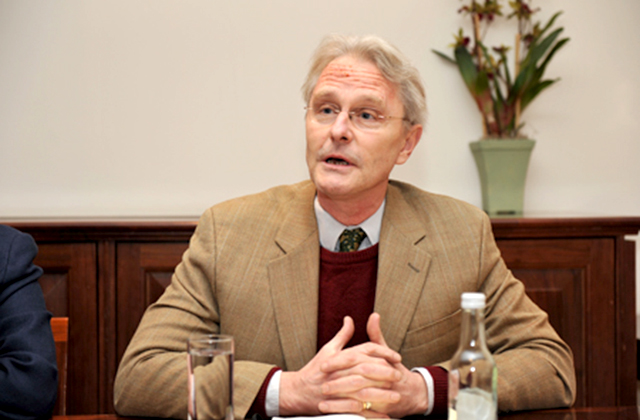It’s not excluded that the situation in the contact line may outbreak again: German analyst

“The mediators can’t eliminate the deadlock in negotiations,” Neil Macfarlane, professor of International Relations at Oxford University, specialist on Russia and the South Caucasus, PhD in political science, told 168.am, reflecting to the developments around NK peaceful settlement process. in particular, touching upon the recent interview of Ilham Aliyev, in which it was stated that mutual concession in NK conflict settlement is possible and Karabakh may become an autonomous republic, Macfarlane said also statements by top officials of the parties to the conflict show that documents at the negotiation table are not vital any more, as there are no common edges between the sides.
According to him, little success was recorded due to these positions of OSCE MG. “Firstly, OSCE MG didn’t record essential results from the very first day of its performance, however, considering that it would be possible to record such a result without the sides, is senseless. MG provided beneficial atmosphere for negotiations, and does even more to restore suspended negotiations, instigate the intention to settle the conflict among the sides.
In fact, we have a situation in negotiations, when each side speaks of the principle proper to itself. Necessity of principle review is being touched upon, which shows that the sides decided to more toughen their postures. However, they should remember that Madrid Principles is a thoroughly developed document and the only one for the time being. The existent situation doesn’t promise developments. Right after the April war I was insisting that intensive negotiations should be launched, and the post-war tension should be mitigated, otherwise it may resume.
We see that the tension hasn’t been eliminated, state of affairs on the negotiation table have more sharpened,” the analyst said, not excluding though that new outbreak on Karabakh-Azerbaijan line of contact may be recorded. In his conviction, it’s difficult to touch upon the settlement, when there is no intention among the sides. “Under this situation what may the mediators do? They’ve repeatedly stated on their positions and nothing has changed for them. Any mediator can neither instigate such an in-depth deadlock, nor it can eliminate it,” the British expert said. The latter believes that they don’t have levers of influence either, they should appear as neutral mediators.
“After the April war installation of investigative mechanisms was touched upon. This issue, to all likelihood, became a reason for a deadlock, and obviously, Azerbaijan was against this. Installation of mediators would create favorable conditions for further constructive negotiations, and if they aren’t installed, towards which the mediators actively worked in Vienna and St. Petersburg, means that we’ll edify the reverse process,” Macfarlane said. He considers it’s not excluded that in this situation NK conflict may outbreak again.
“This isn’t a desirable scenario for external actors, in particular, Russia and the USA, however, we edify that they aren’t able to considerably influence over the sides,” German analyst said. In his observations, they should get along with the idea that the conflict settlement is being postponed for a longer period again.
By Araks Martirosyan

























